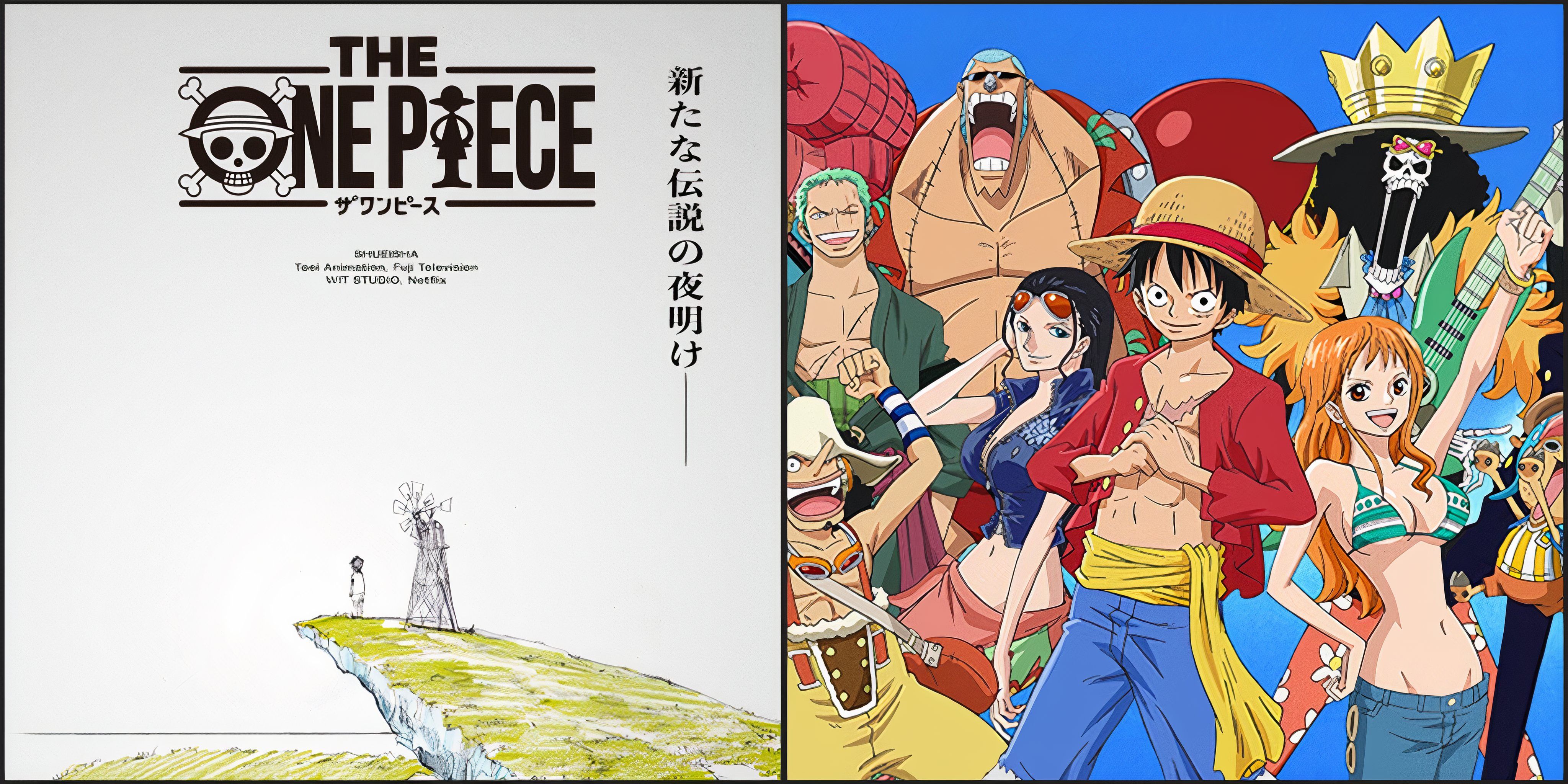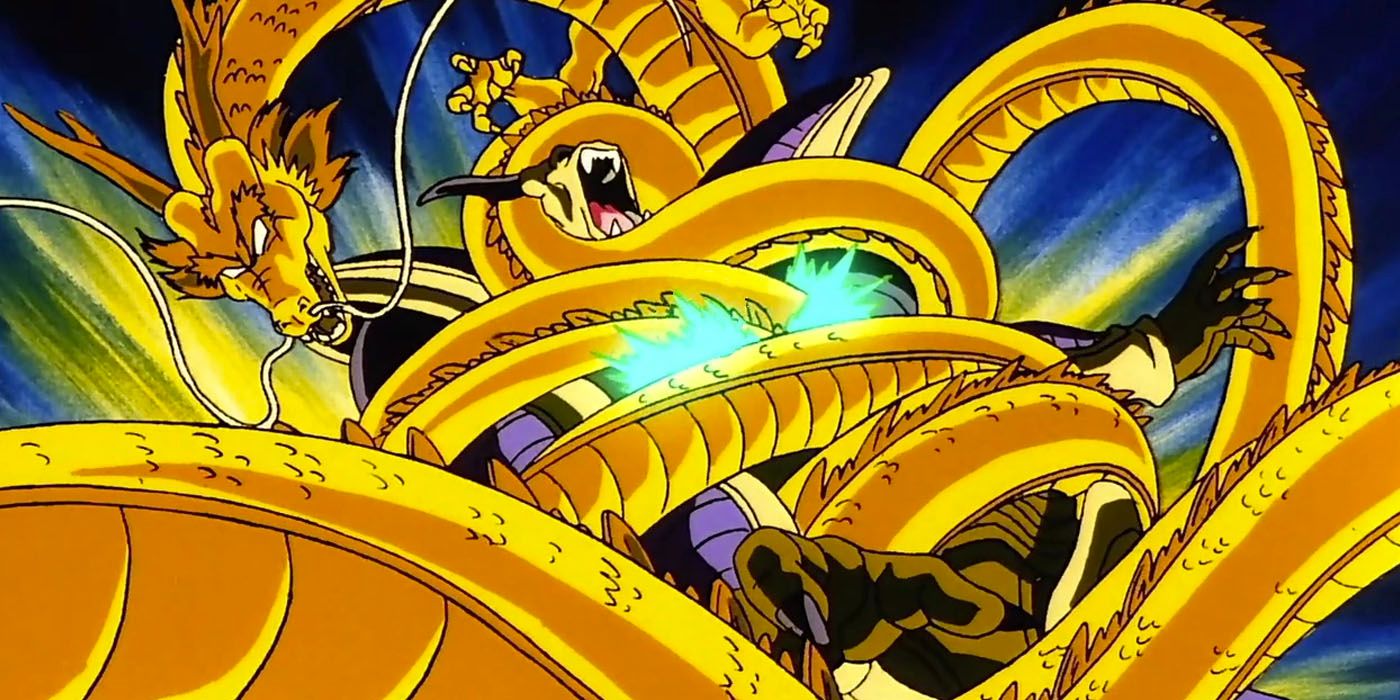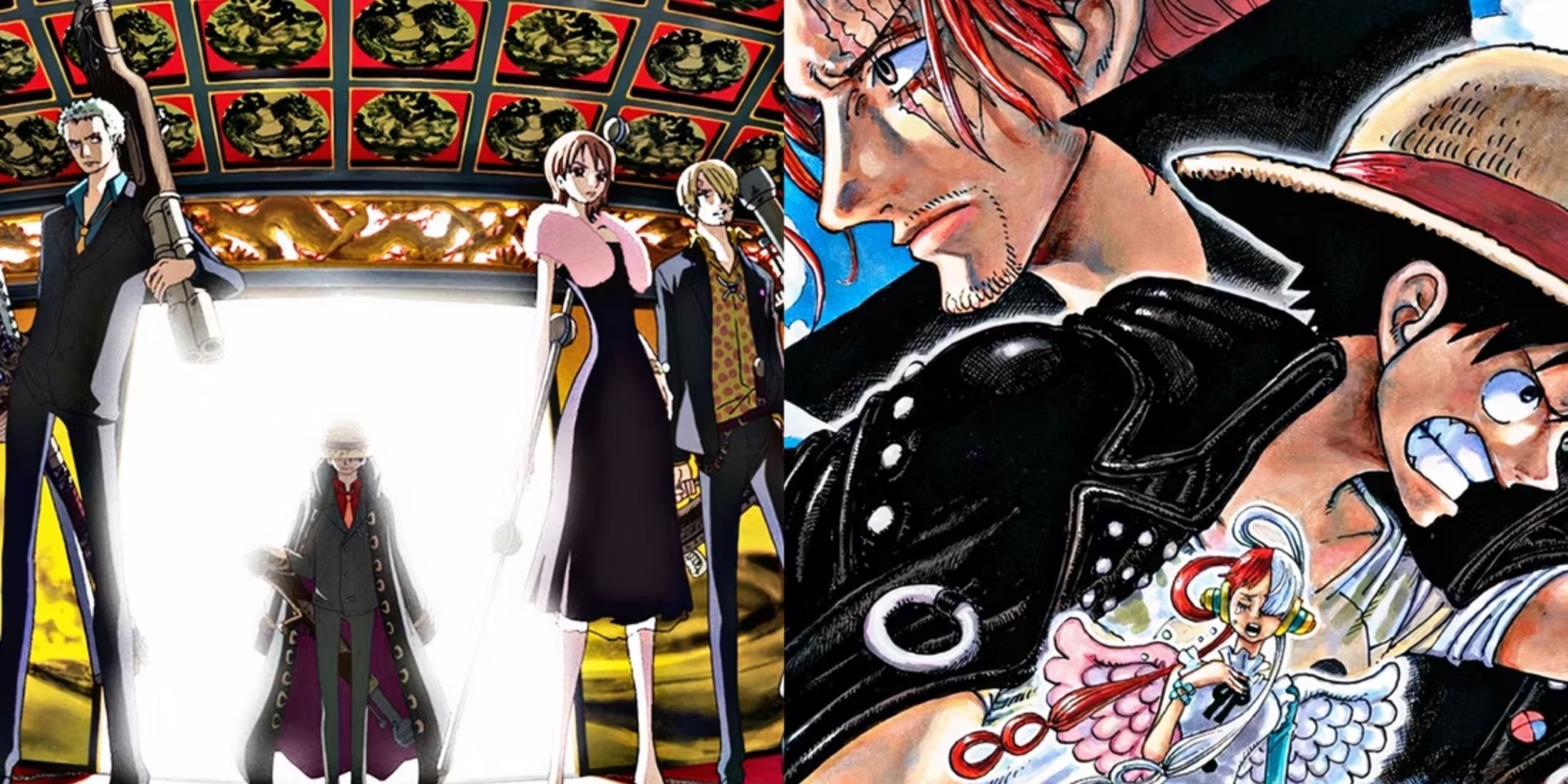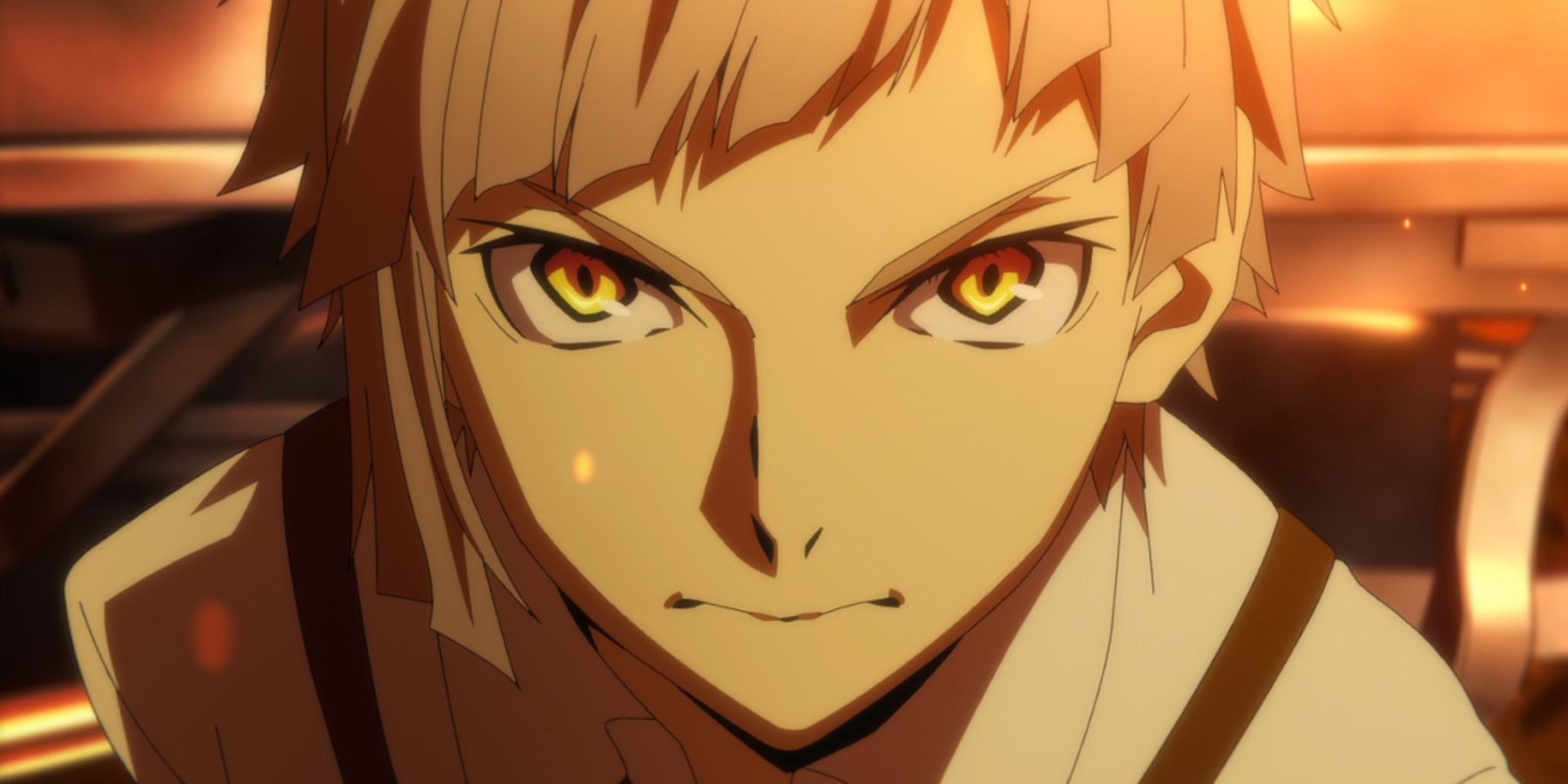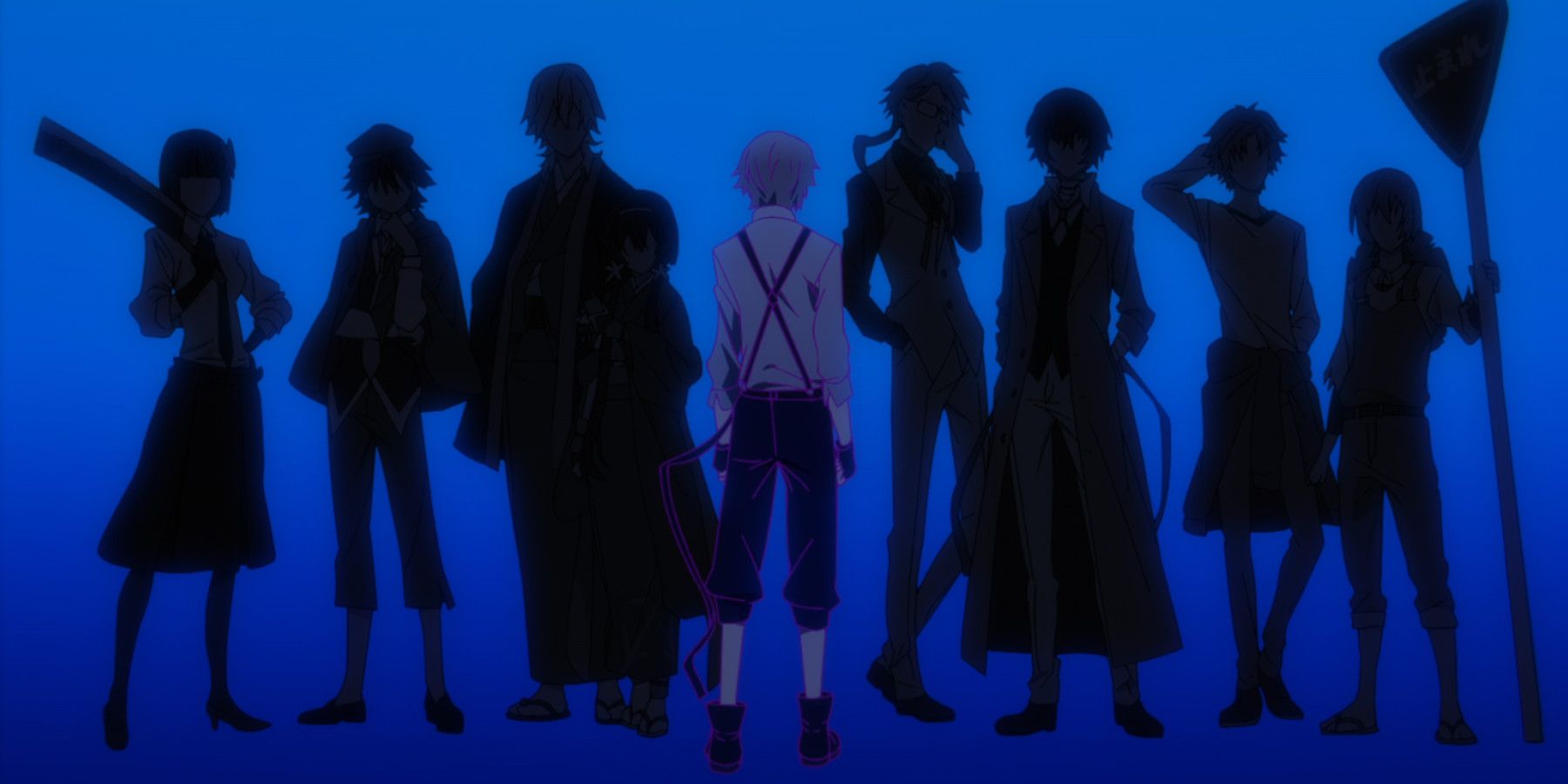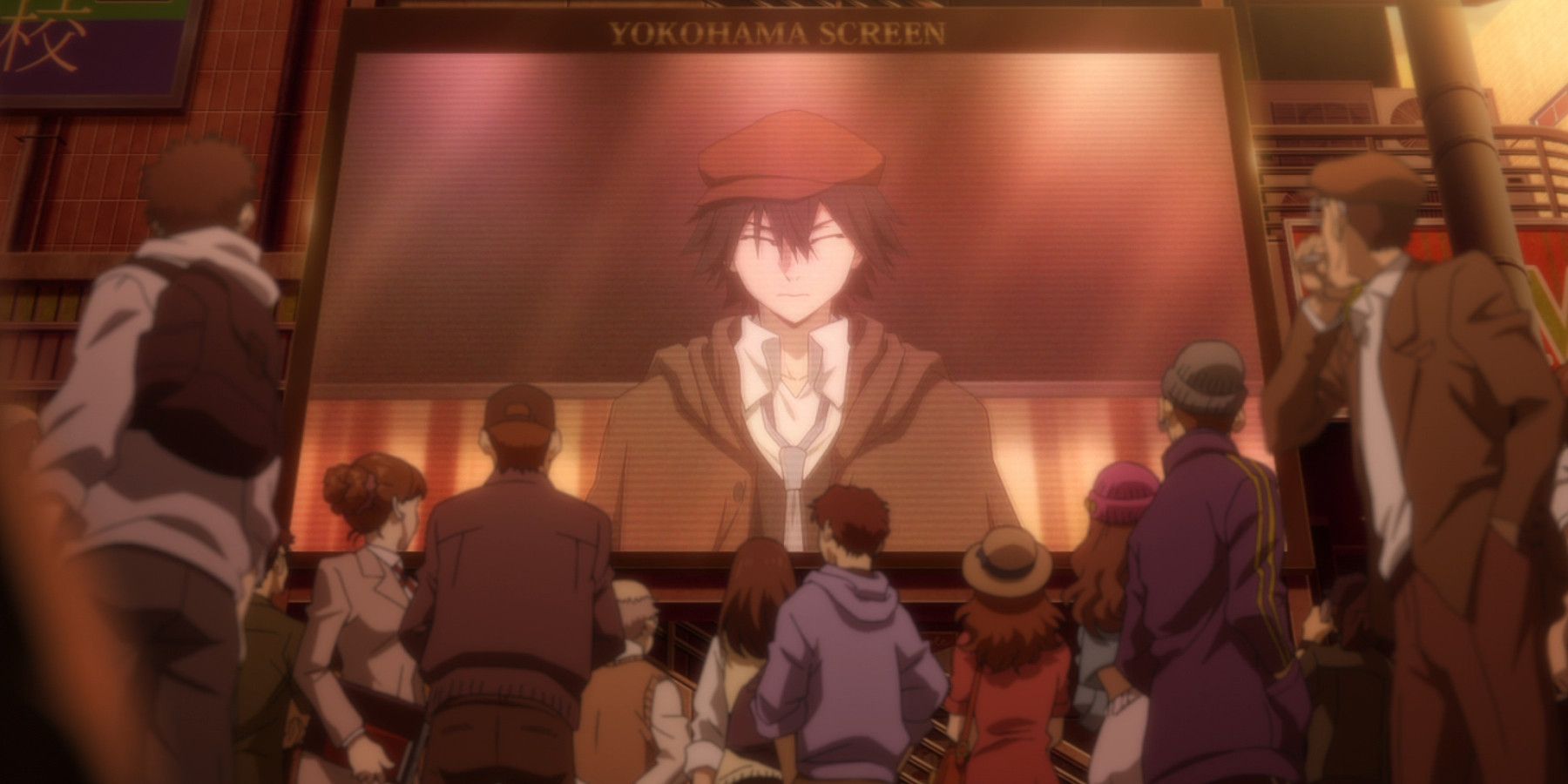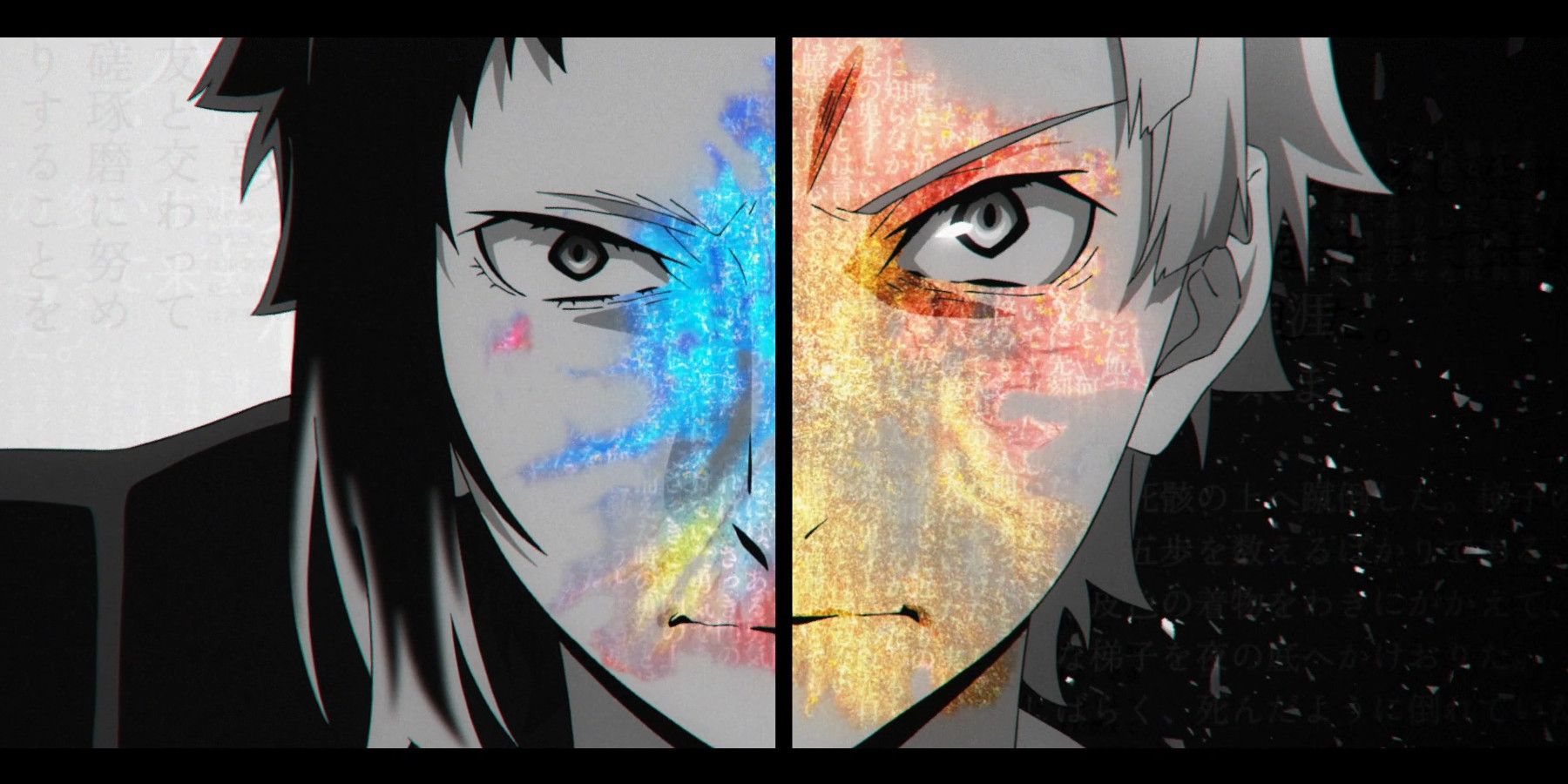Highlights
- Bungo Stray Dogs Season 5 stands tall alongside My Hero Academia and Mob Psycho 100 in the Studio Bones lineup.
- The storytelling and character development in Seasons 4 and 5 elevate the series to new heights, with strong performances from Fukuzawa and Ranpo.
- The Meursault prison break storyline steals the show, but some characters receive less screen time, and the season lacks a feeling of team spirit.
Warning: This contains minor spoilers for Bungo Stray Dogs Season 5, now streaming on Crunchyroll.
2016 was a big year for Studio Bones; it was the year that both My Hero Academia and Mob Psycho 100 premiered, but it also marked the beginning of Bungo Stray Dogs. My Hero became a worldwide sensation, and Mob Psycho is rightfully called one of the studio's best, but after five seasons, it's clear that Bungo deserves to stand as tall as these two giants, if not a little bit taller
Back in April, we gave Bungo Stray Dogs Season 4 a 4 out of 5, praising the continued evolution of its visuals as well as its dramatic storytelling, despite problems with pacing. It was a victim of the show's traditions not mixing all that well with an arc that is very different from any story the show has told before now, leaving fans to wonder how the adaptation would fare going forward.
The Armed Detective Agency Strikes Back
In Season 4, the Agency was on the run, framed for murders they didn't commit, and was more divided than ever. Then, their efforts to prevent a terrorist attack ended with them being framed yet again. To make matters worse, only six days remained before the Decay of Angels would use "The Page" to write the destruction of the state into reality.
Despite all that, it ended on an optimistic note, one which, combined with the assurance that new episodes were only a few months away, kept viewers hopeful. It's that same infectious optimism that helps Season 5 get on a role at blistering speed. By the end of the premiere, Ranpo crashes back onto the scene after a prolonged hiatus and undoes a lot of damage while the new ending theme blasts in the background. It's a glorious turning point
The storytelling arguably sees a lot of improvement, though it's more accurate to say that Seasons 4 and 5 simply work better as a combo. The arc as a whole elevates the characters of Fukuzawa and Ranpo, making them central to the story. Their father/son dynamic yielded some powerful emotions from an already pathos-rich narrative. Plus, it was important to see how the Agency came to be before seeing it challenged like never before.
Both Ranpo and Fukuzawa steal the show this time around, and Fukuzawa's story is especially strong given how he plays off of the antagonist. Gen'ichirou "Ouchi" Fukuchi is one of the best villains in the series thus far. His strength alone is intimidating, but it's the overpowered weapon in his possession that turns him into a maddening puzzle of a foe.
He is the embodiment of an enemy who refuses to lose, yet there is nuance to his character that keeps his nigh-invulnerability from sapping the fun out of the story. The ceaseless battle of attrition between the Agency, the Hunting Dogs, and the Decay of Angels, constantly keeps the viewer guessing who will be on top.
Season 5's climax culminates in two distinct stages. The first is the airport incident, which has some great battles and some stand-out character moments, notably from Kenji. However, this storyline is utterly out-staged by the Meursault prison break. It's a collection of the most interesting characters in the series, all stuck in one insanely advanced prison, racing against the clock to escape. Meursault is the series at its most unhinged.
Meursault is also just more interesting. Sadly, not every action set piece in an airport can be like Captain America: Civil War. Plus, for a season so eager to let its characters strike back as a team, it feels like the Agency could have played a larger role. Kyouka, Yosano, and Lucy are suspiciously absent for most of the airport story. Furthermore, there are signs of an arc for Kunikida that don't amount to much by the last episode.
Obviously, not every character needs their own episode and there's no rule that says lingering plot threads have to be resolved within a single arc. By this point, the lines have blurred such that it's not even clear if this season marks the "end" of this arc. Still, there's a feeling of team spirit that's somewhat lacking after an entire season stressing their need to come together as one.
Bungo Going Global
Bungo continues to build upon its character-focused foundations, hinting at a much larger world beyond the stage of the first three seasons. The enemy is one that threatens the entire world now, and while some may yearn for the show's simpler days, Takuya Igarashi's direction juggles the story's ambitious plethora of ideas with ease thanks to the dramatic presentation.
That isn't to say that the growing complexity of the worldbuilding escapes scrutiny. First, there's the Page, then Bram Stoker, and a vampiric infection. Next, the "One Order" becomes the most important device, while the Page seems to fade into the background. The story has introduced a lot of new lore and plot devices which very suddenly can change the playing field.
These things can help make the world feel larger and more interesting, but in an already fast-paced arc, they can just as easily make the story feel cluttered. With that said, one could argue this expansion is an evolution of the core themes. Bungo is a story about a lot of things: abuse, trauma, and self-affirmation, but it's clear that it is also about war.
Everything and everyone seems to tie back to The Great War, the origin point of the entire series. Just as previous seasons explored its themes through the stories of orphans and victims of abuse, the Decay of Angels arc discusses war and its cost through the stories of soldiers and the victims of war.
It is for this reason that Fukuzawa and Fukuchi are so great together; two kindred stray dogs who found each other through a love of battle and who were separated by the war. It ends up feeling like an inspired mix of Metal Gear Solid and Rurouni Kenshin. The resolution leaves a powerful burden in the characters' hands which will forever change the series. It's hard to imagine this story ever just being about detectives in Yokohama ever again.
If it seems as though this season is a mixed bag, it really isn't. This show is ludicrous, silly, melodramatic, and filled to the brim with perhaps too many ideas. But very frequently, when the artwork, the music, and the performances align just right, it can be one of the most beautiful anime out there. The blemishes are nothing in the face of this story's ceaseless passion.
Strangely, it's not yet certain if the finale, near-perfect as it is, is canon, but assuming it is by the time the next chapter comes out, Season 5's conclusion is frankly historic. Bones took a lack of source material that would signal death flags for any other adaptation and turned it into an event that united the whole fandom in shared anticipation.
Bungo Stray Dogs is one of Studio Bones' best works since Fullmetal Alchemist: Brotherhood
Few stories are as in love with their characters as Bungo. Few productions in TV anime are as consistent and well-crafted as Bungo. Few production teams are as evidently in love with the story they work on as Bones is with Bungo. Much has been said in praise of this series and far more is begging to be articulated, but for now, this should suffice: Bungo Stray Dogs is one of Studio Bones' best works since Fullmetal Alchemist: Brotherhood.
Rating: 5/5
